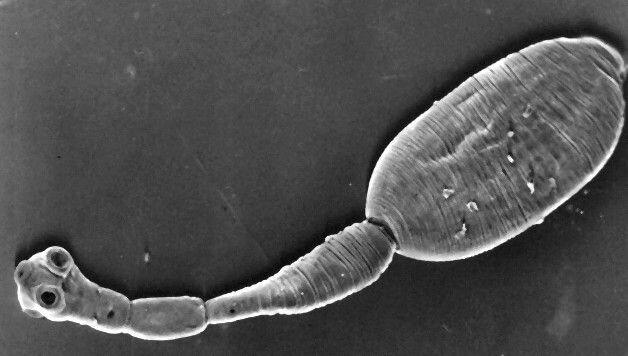Forth Valley Veterinary Clinic Blog
Our top tips and useful information regarding pet and animal health…

Hydatid and Tasmania
n the 1960’s there was a disturbingly large number of cases of people with hydatid cysts caused by the hydatid tapeworm of dogs. These cysts, contracted by ingesting the eggs of tapeworm found in the gut of dogs, would develop in the internal organs of people, growing quite large and needing surgical removal. Sometimes they even lead to death.

Tapeworm
There are many different types of tapeworm which can affect domestic animals. The most common type is the Flea Tapeworm (Dipylidium caninum). This tapeworm lives in the small intestines of cats and dogs (and occasionally children) and releases small, white packages of eggs which appear like cucumber seeds or grains of rice in the faeces or around the anus of cats and dogs. An intermediate host – typically a flea or louse – will ingest the eggs and they develop into an infective stage within the flea/louse at which time the flea/louse is ingested while grooming and then the tapeworm reinfects the dog/cat.

Roundworm
Toxocara canis is the most common roundworm of the domestic dog, and it is not able to infect cats (cats have their own species of roundworm). Its presence can go completely without symptoms although more often it creates diarrhoea, vomiting, poor growth, pot-belly and weight loss in the canine host. Sometimes the sheer volume of infection can cause such poor nutrition, even bowel blockage, and can lead to death.
Our staff are wildly passionate about animals and making sure your pet is living its healthiest and happiest life
Back that passion with expert qualifications and a love of learning, and it’s safe to say your fur family is in very safe hands.
